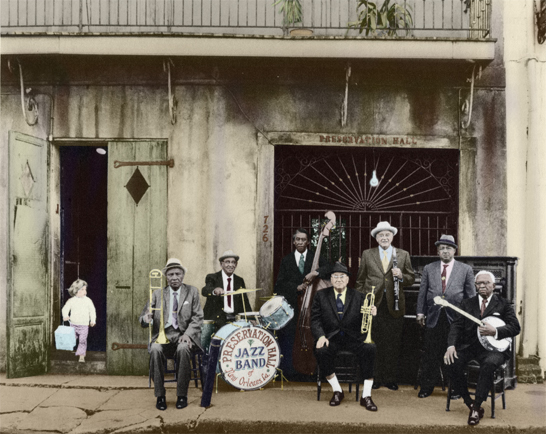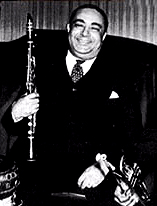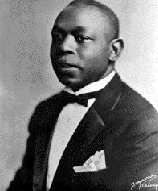In a city whose lifeblood was music, there was always work for clarinetists in early 20th century New Orleans. When the refinement of Creole culture came head to head with the rougher uptown sounds, the unmistakable cry of New Orleans jazz clarinet was born. Its wail could be heard from street parades and dance halls in the French Quarter, to picnics on Lake Pontchartrain.
Early jazz clarinetists like Johnny Dodds, Jimmie Noone and Larry Shields, all born around 1890, found work plentiful in New Orleans before World War I. But as war loomed over the country, thousands of African Americans migrated to Chicago from the South to take jobs in the war effort. On the South Side of Chicago the winning combination of hot jazz and liquor created a “gold rush” of nightclubs catering to dock hands and stockyard workers. Opportunities for jazz musicians shifted from New Orleans to the wide-open scene in Chicago.
This week Riverwalk Jazz spotlights the rich legacy of jazz clarinet players from the Crescent City. The sound of New Orleans jazz is unique. And it's the clarinet that blends the distinctive sounds of cornet, trombone, drums, bass, banjo and piano together in New Orleans-style jazz bands, just as filé spice binds ingredients together in a gumbo stew. Evan Christopher, a dynamic New Orleans-based player dedicated to this unique clarinet tradition, joins The Jim Cullum Jazz Band on stage at The Landing.

Preservation Hall Jazz Band. Photo courtesy William Carter.
Music on the Air This Week
New Orleans clarinetists—Sidney Arodin, Tony Parenti and Joe Darensbourg— emerged in the 1920s. Arodin composed the classic piece, "Up a Lazy River" with Hoagy Carmichael and on his own wrote the tune, "Get Wit' It." "Lou-easy-an-i-a" is Joe Darensbourg's best-known song and the title of Tony Parenti's "Vieux Carré" refers to New Orleans’ historic French Quarter.
In 1962 the opening of Preservation Hall gave renewed energy to the New Orleans revival movement launched in the 1940s. Clarinetist George Lewis, a veteran of Bunk Johnson's band, was a regular at the Hall, as was Albert Burbank, composer of the jazz standard, "Lucky Me.”
Also on the air this week, we hear Evan Christopher's original composition, "Wrath of Grapes."
Photo credit for Home Page: New Orleans Second Line Clarinet Player Photo by Leo Touchet.
Text based on Riverwalk Jazz script by Margaret Pick ©2011



